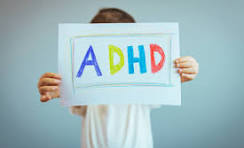The neurodevelopmental disorder known as attention-deficit/hyperactivity disorder (ADHD) is typified by impulsivity, hyperactivity, and inattention. Even while doctors frequently recommend medicine and therapy, many people look for natural ways to cure their ailments. But the effectiveness of these treatments varies greatly, so while thinking about other options, it’s important to distinguish fact from myth. This article will discuss evidence-based techniques, what works and what doesn’t when it comes to natural therapies for ADHD.
Comprehending Natural Treatments and Dietary Adjustments
Omega-3 Fatty Acids:
According to some research, fish oil, which contains omega-3 fatty acids, may help reduce the symptoms of ADHD. More thorough research is required to validate these conclusions because the evidence is conflicting.
Elimination diets:
A common strategy for treating ADHD symptoms involves cutting out specific foods, such as those with artificial additives, preservatives, and food coloring. Although some people claim to have improved, there is little scientific proof that elimination diets are beneficial.
Addenda
Zinc and Magnesium:
Because of their effects on brain function, zinc and magnesium are frequently suggested as supplements for the treatment of ADHD. The results of the research, however, have been conflicting; while some studies have found some benefits, others have found none at all.
Iron:
Some research has connected the symptoms of ADHD to an iron shortage. For those with low iron levels, iron supplements may be helpful, but regular supplementation without medical supervision is not advised.
Herbal Treatments
Ginkgo Biloba:
Ginkgo biloba is a well-liked herbal supplement that may enhance focus and cognitive performance. But there is a paucity of scientific data to support its effectiveness in treating ADHD, and there are safety concerns, especially with regard to drug interactions.
Ginseng:
Known for its ability to improve cognitive function, ginseng is another herbal medicine. There is little data on its precise impact on symptoms of ADHD, despite the possibility that it has some benefits for overall health.
Mind-Body Techniques
Yoga and Meditation:
Research has demonstrated that mindfulness-based activities, including yoga and meditation, can lower stress and enhance concentration and focus. Even while these techniques might not address ADHD symptoms directly, including them in a comprehensive treatment strategy can improve general wellbeing.
Exercise:
Enhanced emotional regulation and improved cognitive performance are two indicators of ADHD that have been linked to regular physical activity. Exercises that involve aerobic activity and tasks requiring coordination and focus can be helpful.
Dispelling Often Held Myths
ADHD and sugar
Myth:
Sugar consumption makes symptoms of ADHD worse.
Factual statement:
While consuming too much sugar can make kids hyperactive, especially in the short term, it does not cause ADHD. Reducing sugar consumption is generally recommended for general health, but it is not an effective treatment for ADHD on its own.
ADHD and food additives
Myth:
Food coloring and artificial additives either cause or exacerbate symptoms of ADHD.
Fact:
Although some people could be allergic to specific additives, there isn’t any scientific proof that these allergies cause symptoms of ADHD. Diets based on elimination may be beneficial for certain people, but they are not always successful.
ADHD and Screen Time
Myth:
ADHD is exacerbated by excessive screen usage.
Factual statement: Excessive screen time does not cause ADHD, but it can have negative effects on children’s attention and conduct, especially when it takes the place of exercise and sleep. While they are not particular treatments for ADHD, limiting screen time and encouraging appropriate screen use behaviors are beneficial for overall well being.
Strategies Based on Evidence
Drugs
For ADHD, stimulant drugs like amphetamine and methylphenidate are most frequently recommended. They function by raising the brain’s dopamine and norepinephrine levels, which enhance focus and impulse control. For people who don’t react well to stimulants, doctors may also prescribe non-stimulant drugs like guanfacine and atomoxetine.
The use of behavioral therapy
Teaching coping mechanisms, organizing principles, and behavior control techniques are the main goals of behavioral therapy, which includes parent education and cognitive-behavioral therapy (CBT). It can assist people with ADHD in creating practical plans for symptom management and enhanced functioning in a variety of spheres of life.
Instruction and Assistance
It is crucial for individuals, families, and educators to receive education regarding ADHD and its management. Individuals with ADHD can become more empowered to advocate for their needs and obtain the right support services if they have a thorough understanding of the nature of the disorder, how it affects daily life, and the available treatment options.
Changes in Lifestyle
In addition to various therapies for ADHD, adopting healthy lifestyle habits including eating a balanced diet, exercising frequently, maintaining proper sleep hygiene, and reducing stress can help. These changes in lifestyle enhance general wellbeing and may lessen symptoms of ADHD.
In summary
Although some people may benefit from natural treatments for ADHD, they should be used cautiously and with skepticism. Many of these treatments have not been proven to be safe or effective by science, and some may even be dangerous if used unsupervised. When it comes to treating ADHD symptoms, it’s critical to speak with medical specialists before attempting any alternative therapies and to give evidence-based treatments like behavioral therapy and medication priority. A thorough and knowledgeable approach to therapy can help people with ADHD achieve the best possible results and enhance their quality of life.

